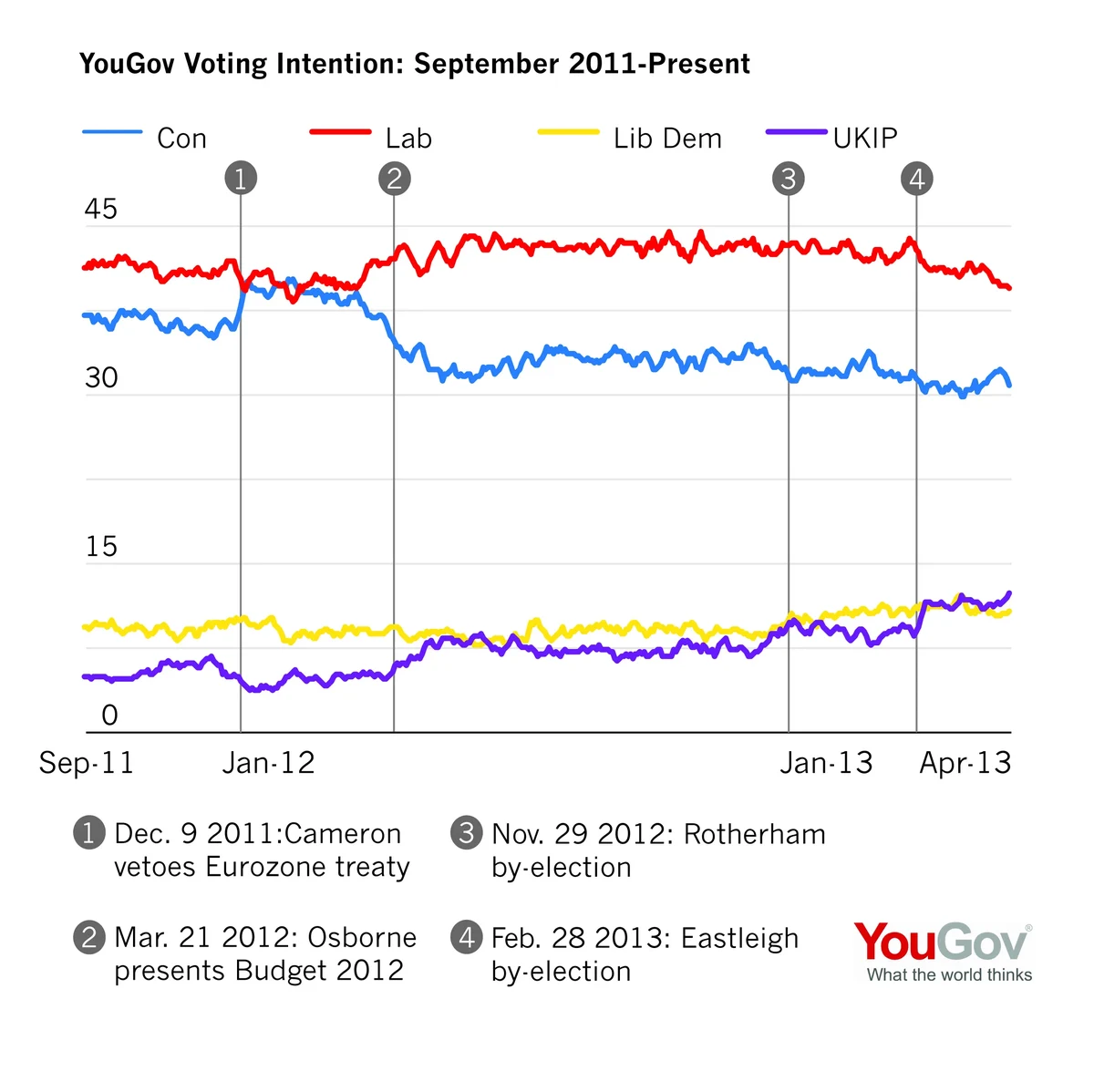Today we have this year’s batch of local elections. This is the smallest of the four year local election cycle – there are no district or borough councils up for election, it is just the County Councils and a few unitary councils (mostly those that used to be county councils but had their districts abolished, like Durham, Cornwall, Northumberland, Shropshire and Wiltshire – although Bristol also has a third of its councillors up for election).
Without any elections in London, Scotland, most of Wales or the Metropolitan counties this is, by definition, a rather Tory set of elections. When the counties were last contested in 2009 when the Conservatives were riding high in the polls they took overall control of every county council except Cumbria. Of the 2392 seats being contested, sixty percent are currently held by the Conservatives (accoals at 52, L 245, LD 481, OTH 214). All the councils up for election except Bristol are “all-outs”, with every councillor up for election, making it far easier for councils to change hands. With the Conservatives starting from an extreme high, it is almost inevitable that they will lose a lot of seats and lose control of a substantial number of councils.
It also means that Lib Dem councillors up for re-election are overwhelmingly in LD-v-Con areas, not LD-v-Lab areas. In recent local elections the Lib Dems have done OK against the Conservatives, but been massacred where they are up against Labour in metropolitan areas. With very few LD-v-Lab urban areas having elections, don’t expect huge Lib Dem losses this year.
Before local elections there is normally a rather pathetic game of expectation management by the parties, of claiming that party X needs to be making an absurd number of gains to be doing well, or that party Y expects to lose millions of seats so it claim it’s not as bad as they thought when they only lose so many… as if doing badly is somehow less bad when you can pretend you expected to do worse, or doing well is somehow even better when you can pretend you expected to be mediocre. Actually this year they haven’t been so bad compared to some previous years, though there are still a couple of days left! The predictions from Rallings and Thrasher, which are really the only decent guide, are that the Conservatives will lose around about 310 seats, Labour will gain around 350, the Lib Dems lose around 130 – roughly speaking (for there have been many changes in councils since then) this would reverse the 2009 changes and take us back to the position at the 2005 local elections, fought on the same day as Labour’s general election victory.
There is also the question of UKIP – we can expect them to do well in terms of share of the vote, but a more interesting question is whether it translates into council seats. While the national polls tell us that UKIP have gained significant support, what they don’t really tell us is whether that support is broadly uniform across the country (in which case it won’t be translated into many seats), or whether there are particular areas of UKIP strength (in which case it could result in lots of councillors elected). In 2009 when these councils were last contested UKIP only had candidates in a quarter of them, so we don’t even really have data on where they were strong four years ago! A year ago in 2012 UKIP actually did pretty well in the local elections in terms of the votes they won where they stood… but got hardly any councillors because their vote was evenly spread even where they did do well (to take some examples, in Basildon they got 17% of the vote and came third, but got no councillors at all, in Thurrock they got 18% but only managed one councillor). We may see the same, or we may see more effective targetting or them getting over a critical mass of support in some councils and gaining large numbers of seats. Right now we really cannot tell.

The other measure people will look at is the BBC’s “Projected National Share” (and the Rallings and Thrasher equivalent, the “Equivalent National Vote”). Both of these are essentially a projection of what the national shares of the vote would be if there were local elections everywhere, rather than just in the Toryish bits of the country that actually have elections. Both are based on looking at the swing in various key wards.
In 2012 the BBC’s Projected National Share was CON 31%, LAB 38%, LDEM 16%. The Rallings & Thrasher Equivalent National Vote was CON 33%, LAB 39%, LDEM 15%. Rallings & Thrasher are predicting CON 29%, LAB 38%, LD 16%, UKIP 11% for this year’s ENV.
Just in case anyone is about to get excited about that high Lib Dem score (or disappointed that Labour is expected to be below 40%), bear in mind that people do vote differently in local elections to national elections. This is most evident in the case of the Liberal Democrats, who consistently do better in local elections than national ones (something I looked at back here.)
Finally we come to the question of what the elections tell us, and whether they matter. My usual answers are not much, and very much so! In terms of national levels of support local elections really don’t tell us very much we don’t already know from the national opinion polls. If people vote the same as the national polls suggest, then it doesn’t tell us anything new, if they vote differently, it is almost certainly because people just vote differently in local elections to they way they do in national elections. This year’s results may be slightly more useful than usual since they may give us some insight into exactly how the national UKIP support is distributed at a local level, though of course, it can’t tell us anything about their relative levels of support in Metropolitan areas.
Just because local elections don’t tell us much, it doesn’t mean they aren’t important – they matter deeply in terms of shaping the narrative, in terms of whether a party is seen to be moving forwards and doing well, or unpopular and doing badly. In 2011 the narrative emerged that Labour had rather flopped in the local elections and the Conservatives had done well. In 2012 Labour did very well in the local elections and it cemented the poll increase they’d had since the 2012 budget (though Boris Johnson’s victory in London stopped it being across the board good news for Labour). This year we can be pretty confident of solid Labour gains, and there is no obvious source of Conservative solace, so unless they really mess up the expectations management the effect on the political narrative is likely to be a strong positive for Labour, with them being seen to make progress, gain support and generally be on track towards success. The most obvious obstacle to that is if UKIP do particularly well and the weekend’s news coverage ends up being all about a UKIP breakthrough, rather than Labour success. On top of that there is the practical impact – councillors are often the ground troops, the backbone of local associations and the people who knock on doors and deliver leaflets, so Labour’s gains will help them in the future, Conservative and Lib Dem losses will slowly rob them of feet on the ground.
And, not least, they also determine who actually runs county councils for the next 4 years.
Anthony Wells is associate director in YouGov’s Political and Social Research team, and creator of the blog UK Polling Report.
Not yet a member of YouGov? Make your opinion count by joining today!








